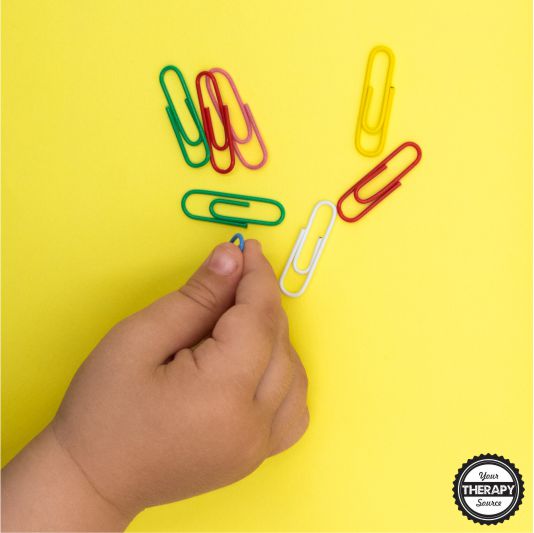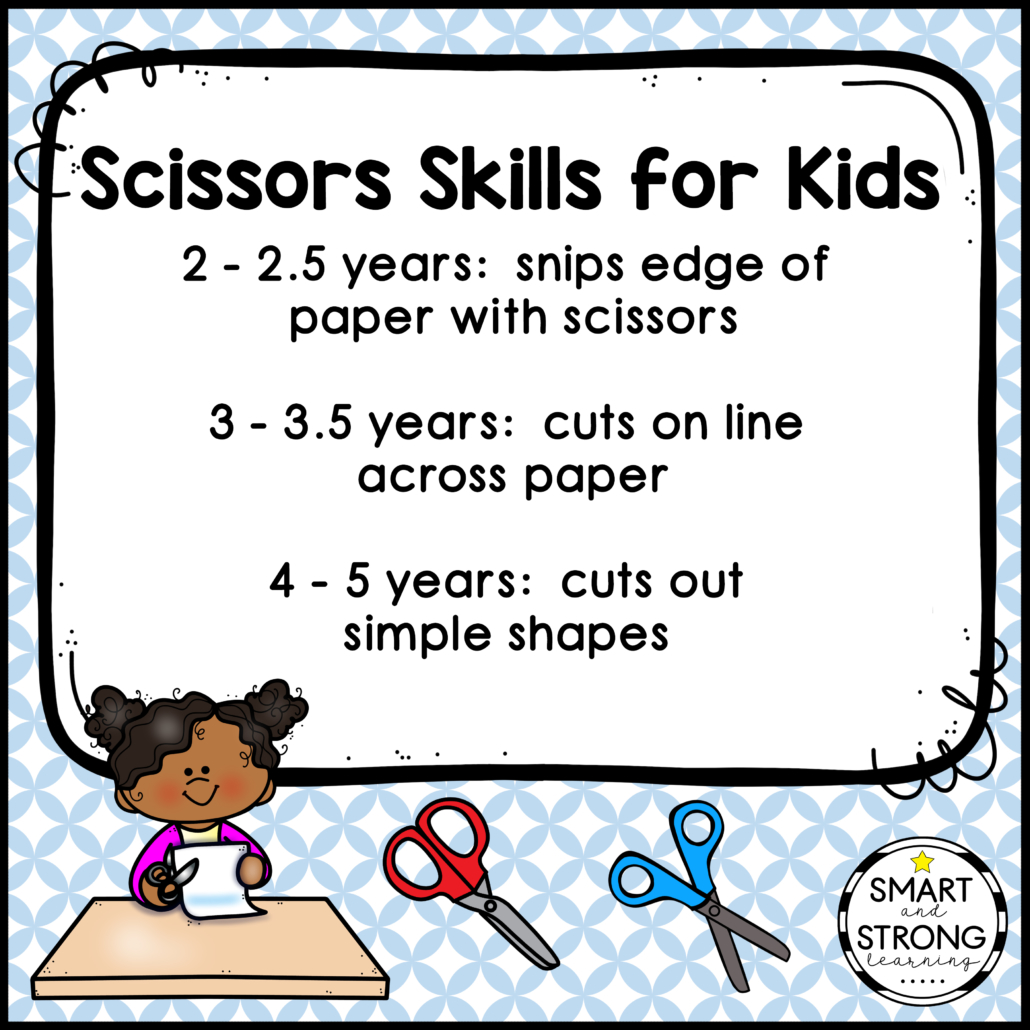Fine Motor Activities for Preschoolers
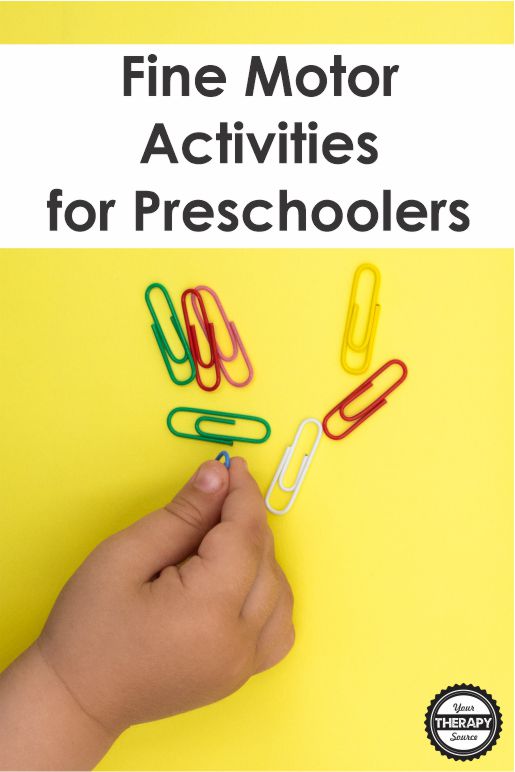
Preschool prepares children to learn through play, educational toys, and fine motor activities. Fine motor activities for preschoolers help strengthen the small hand muscles and help develop a pincer grasp (pinching between the thumb and index finger) so they can eventually develop a good pencil grip and learn to write. Hand-eye coordination (eyes and hands working together) and bilateral coordination (using both sides of the body at the same time) are also developed with fine motor activities so preschoolers can feed and dress themselves and participate in two-handed tasks in a coordinated manner.
WHAT ARE PRESCHOOL FINE MOTOR SKILLS?
Fine motor skills affect the ability to fully participate in what preschool has to offer! Children need to develop their fine motor skills in preschool to engage in such activities as drawing shapes with a pencil or crayon, cutting out simple shapes with scissors, and managing fasteners on their clothing at school. Strong fine motor skills pave the way for academic success in primary school.
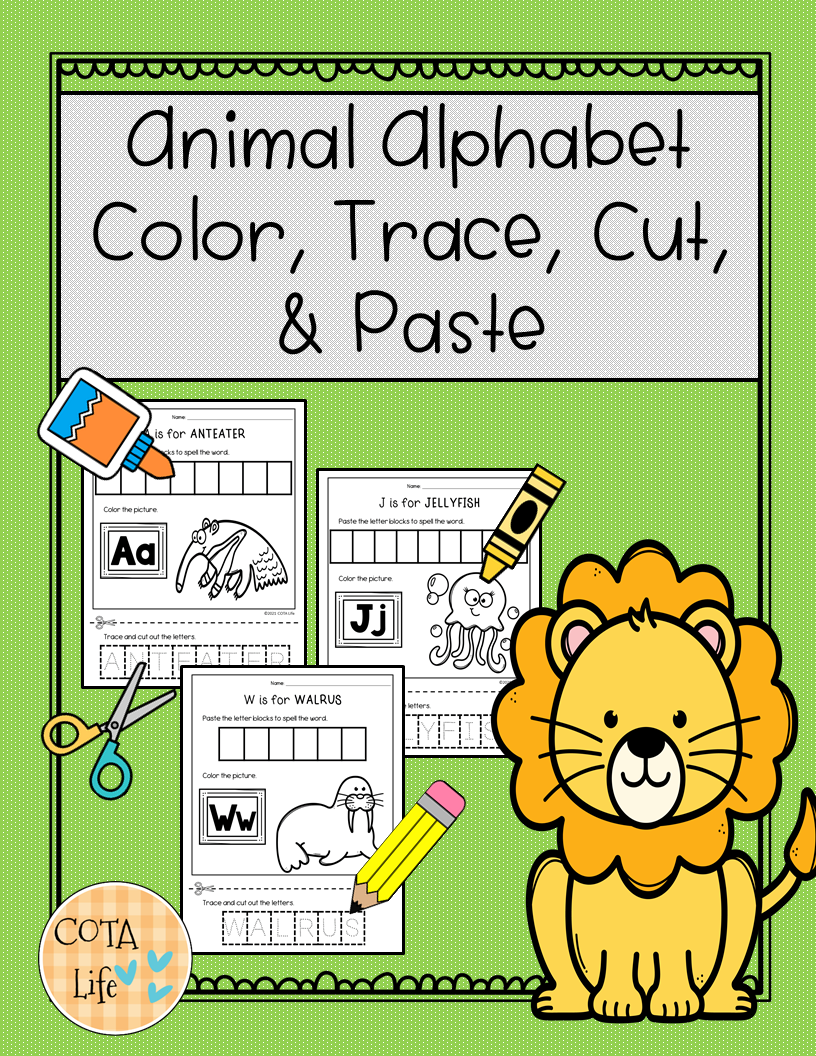
Animal Alphabet Fine Motor Pack
WHAT ARE 3 FINE MOTOR SKILLS A PRESCHOOLER CAN DO?
Using fine motor skills to successfully participate in everyday tasks and self-help activities helps to increase a preschooler’s self-esteem and confidence and prevent bad habits from forming. There are many fine motor skills a preschooler can do; however, there are three important fine motor skills to help in the progression of fine motor skill development specifically. These skills include drawing or coloring, cutting with scissors, and self-care activities.
FINE MOTOR SKILL #1: DRAWING OR COLORING
Drawing or coloring with markers, crayons, or chalk is a favorite among preschoolers. Learning how to hold and use a pencil or crayon to draw lines and shapes and develop pre-writing skills (the underlying skills needed for handwriting) becomes an important skill for future classroom assignments. Many preschools incorporate sensory play (i.e. sand and water) with fine motor activities to make learning fun while developing pathways in the brain for higher-level development.
FINE MOTOR SKILL #2: CUTTING WITH SCISSORS
Introducing preschoolers to child-sized safety scissors provides a lot of opportunities for fine motor skills. Teaching preschoolers how to hold scissors safely and using them properly while incorporating their helper hand during cutting activities will increase their confidence in participating in art and craft activities. At this age, children begin to cut straight and curved lines and then progress to simple shapes during classroom projects.
FINE MOTOR SKILL #3: SELF-CARE ACTIVITIES
Preschoolers want to be independent and take care of themselves! Giving them the opportunity and increased time to fasten their buttons or fasten the zipper on their jacket increases fine motor skills practice. Participation in feeding themselves at snack time increases confidence in their ability to perform fine motor activities around their peers.
10 FINE MOTOR ACTIVITIES FOR PRESCHOOLERS
Fine motor activities in preschool can be loads of fun! The more fine motor practice children get will help them reach their developmental milestones as they grow. Here are 10 fun activities to do with preschoolers to help with their fine motor skills:
- spider web game – place plastic spiders in a small bin with yarn weaved through (resembles the web) and use tweezers to get the spiders out (perfect for Halloween!)
- paper hole punch with different colored cards for rainbow art or paper hole punch pre-drawn patterns or shapes
- lacing cards of different shapes or foam patterns with yarn
- rubber bands around cans or cut-up pool noodles
- stickers – peel and place stickers on the letters of the preschooler’s name or make a sticker collage
- paper clip chain – grab a bowl of colored paper clips and have the kids clip them together to form a chain
- clothespin clip– match up letters of the alphabet on a clothespin clip to letters of the alphabet on laminated cards
- squeeze paint with squirt bottles or squeeze water paint with squirt bottles tracing over colored sidewalk chalk
- q tip painting letters of the alphabet
- cut strips of paper into rainbow confetti
FINE MOTOR ACTIVITIES FOR PRESCHOOLERS AT HOME
How do we help our children continue developing the skills they learn in the classroom without having all those fun toys at home? Everyday household items can be turned into fine motor activity fun around the house. The following are some activities that you can set up for your child at home:
- kitchen tongs to put marbles on an upside-down bath mat or into a bowel
- toothpick tower with marshmallows or poke toothpicks in a styrofoam cup or cheese shaker
- pipe cleaners through colander holes
- tweezers to pick up cereal to transfer in and out of the ice cube tray
- eye droppers to transfer colored water or liquids in and out of the ice cube tray
- buttons or pennies hidden in play dough or use cookie cutters to make designs in play dough
- thread beads or pasta on straight straws or crazy straws
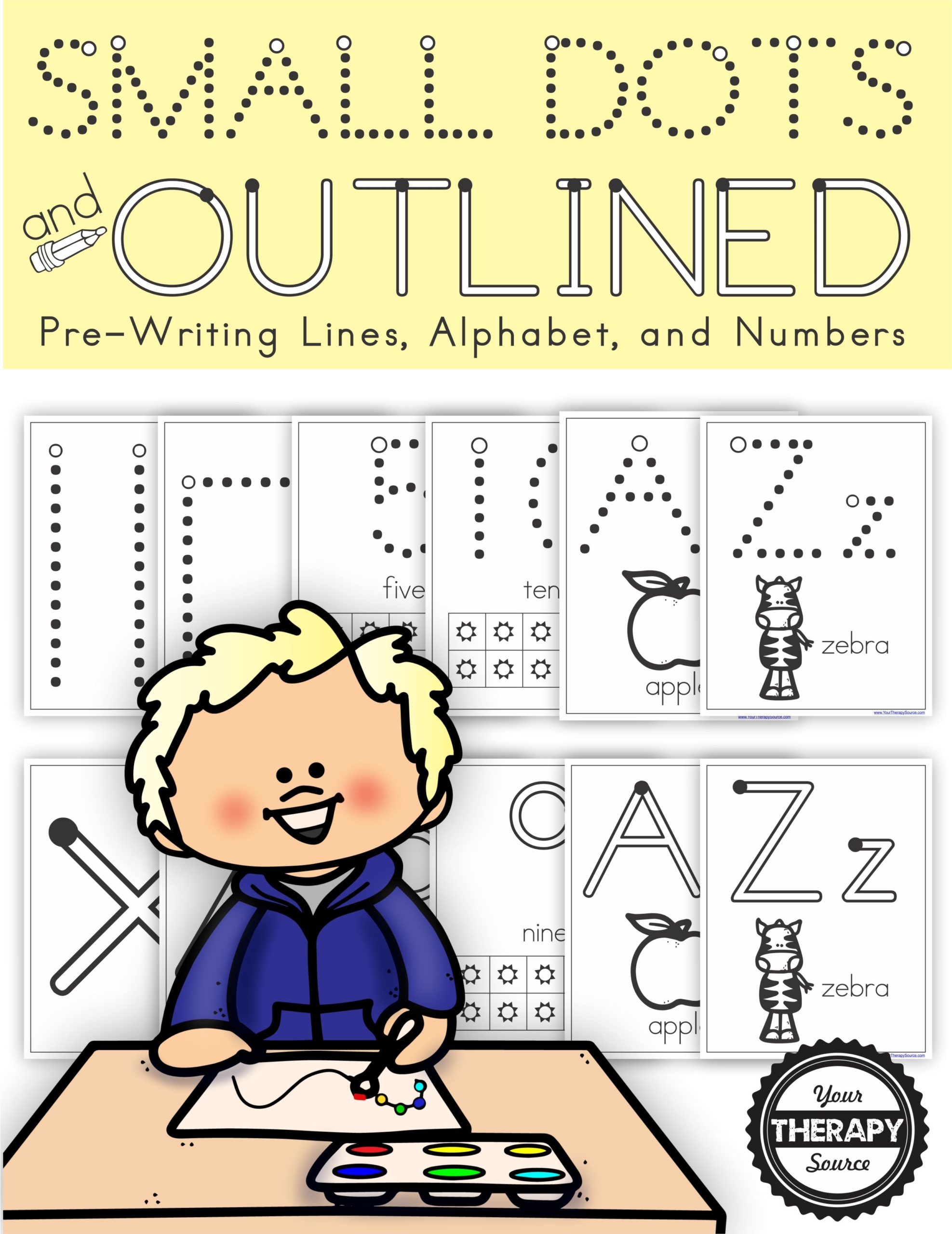
Q-Tip Painting Printables – Prewriting, Alphabet, and Numbers
FINE MOTOR ACTIVITIES FOR PRESCHOOLERS PDF
Need activities in a hurry? These activities are a great way to help your preschoolers practice their fine motor skills. You can download and print these FREE fine motor activity resources for preschoolers in PDF format:
Fine Motor Skills Game – Eat the Cheese
In conclusion, preschool is a time when children are developing in gross motor, fine motor, language, and cognition areas, and children develop these skills at their own pace. If there is a concern with preschoolers having difficulty keeping up with their peers in the classroom, talk to a teacher or a doctor about making a referral to an occupational therapist. Occupational therapy helps children develop the fine motor skills they need in school and everyday activities for future academic success.
MORE IDEAS FOR PRESCHOOLERS
Large Group Activities for Preschoolers – great activities to do with a classroom of preschoolers.
Feelings and Emotions Activities for Preschoolers – preschoolers who understand their feelings and emotions have better academic success.
Parachute Activities for Preschoolers – fun activities to do while using a parachute.
Self-Regulation in Preschoolers: Tips, Activities and More – strategies to help preschoolers manage their emotions so they can focus during the school day.
Fine Motor Games for Preschoolers
Read more information on Fine Motor Activities and Fine Motor Activities for Kindergarten.
ARTICLE WRITTEN BY:
Kimberly Orlando, MOTR/L – Kimberly Orlando received her Master of Occupational Therapy from Chatham University in Pittsburgh, PA in 2001, and received her Level 1 Handwriting Specialist Certification through Handwriting Without Tears in 2012 in the areas of Pre-K Readiness, Printing, Cursive, and The Print Tool Evaluation. With 21 total years of experience as an Occupational Therapist, she has 6 years of experience providing services in hospital and home health care settings and 15 years of experience in early intervention and school settings (Pre-K through middle school levels). Kimberly also has experience tutoring children with fine motor and handwriting concerns.
